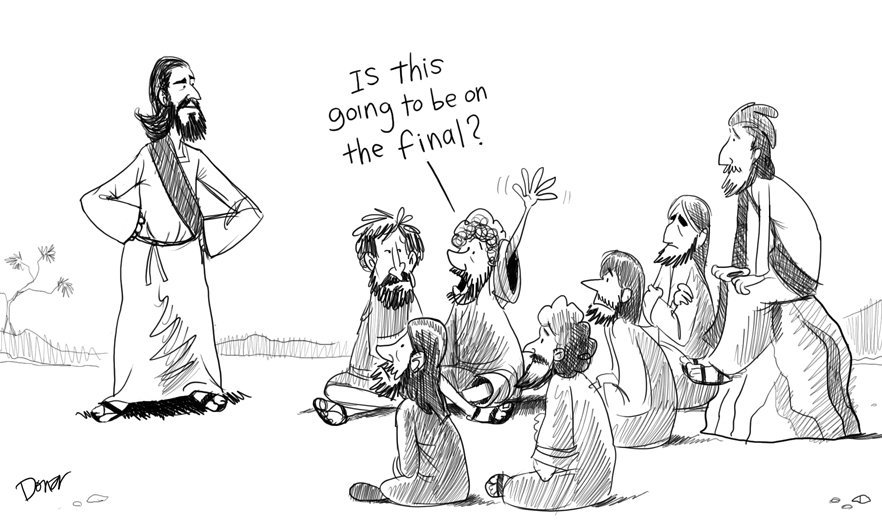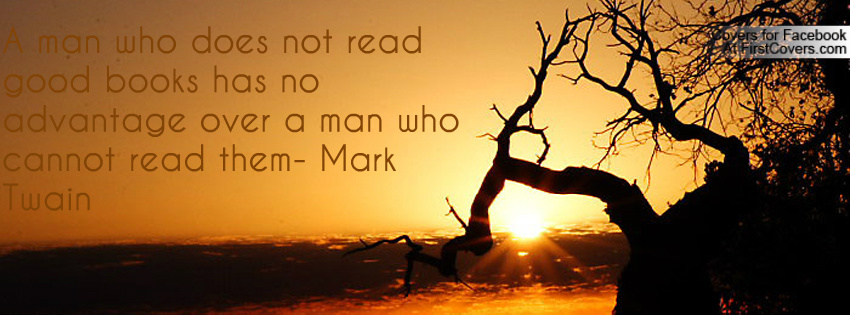I found the image at Political Graffiti. It seems to me that there is a more serious parallel that one can draw between Christian discipleship and education in general. Traditionally, Christianity has been characterized by the vast majority of its devotees thinking in this term, so that even its teachers have ended up “teaching to the test.” What will we be judged on? What will we be held accountable for?
But the real test of religious faith, and of any sort of education, is not a set of questions given at a particular point, say the end of a semester, but real life. We don’t know in everyday life or on typical final exams what will come up. But that is not the point. The point is to learn, to understand, and to figure out what is important and why, and find a way to absorb it and make it a part of you.
If “Will this be on the final exam?” seems like an appropriate question to you, let me suggest that you are missing the point of education, or of your religious faith. The appropriate version of the same question would be “Is this important?” But if you have to ask, then you probably have not grasped what the class – or what the religion – is really about. And so perhaps a better question, if you find yourself puzzled, is “Why is this important?”
Such questions, in my experience, tend to lead interesting places. If nothing else, they may open the door to conversations about what different people, with different personality types, tend to consider important and valuable.
But is there ever learning that is inherently and truly non-valuable? Is there any question the exploration of which is not, at the very least, useful mental exercise? Some physical exercises may be more useful for developing certain muscles or maintaining fitness and health than others, but any exercise, unless it is performed in a dangerously inept manner, is more advantageous than not exercising at all. And all thinking, all reading, all discussion – again, unless it is done in a completely reckless manner – is more beneficial to a person than not thinking, not reading, not discussing.
And when it comes to ethical instruction and training, figuring out what will be on some posited final exam – a final judgment – is really missing the point. Ethics is about how we treat each other. That’s one reason why I find the discussion many people engage in about “objective” morality so bizarre – as though what matters is whether you observed some code inscribed on heavenly tablets, rather than how we treat people.
Let me close with a quote from Mark Twain that I came across on Facebook (with apology for the sexist language), which I think makes the same point I made above about education. Not reading, not learning, not growing and maturing, even though one can, is no different than being incapable of doing those things. And if we consider not being able to do them unfortunate, then surely we should do them – but the key to that is realizing that things like reading, learning, and being ethical are valuable in and of themselves, for their own sake, even if they aren’t on some formal test.
Because life is the test, and you never know what will be on it.














